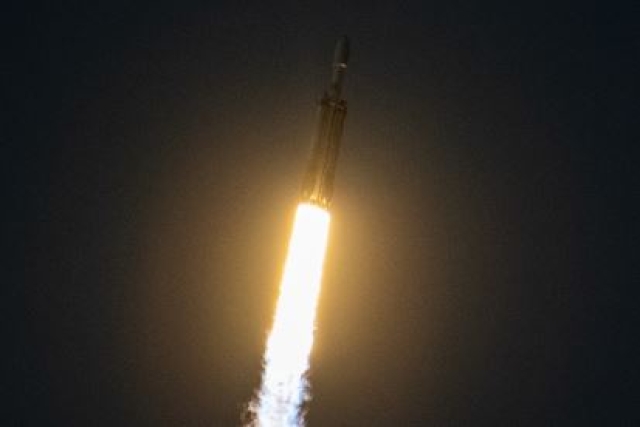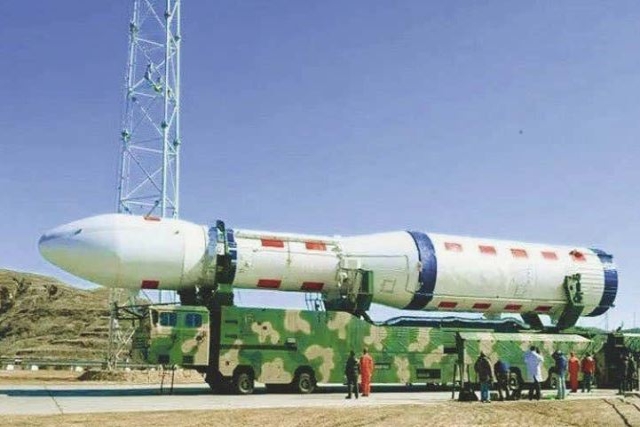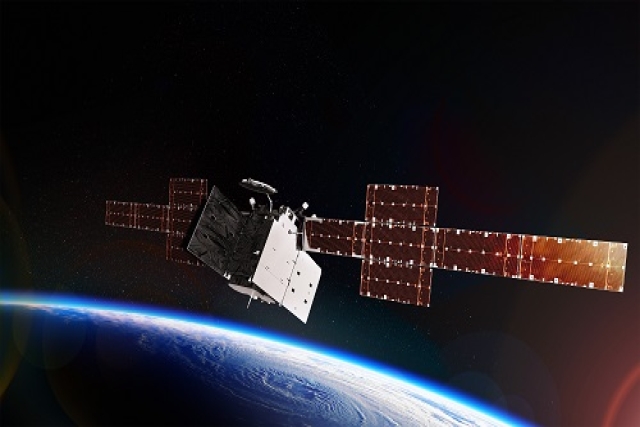U.S. Investing $33B to Counter Chinese, Russian Challenges in Space

The U.S. Department of Defense has earmarked $33 billion for fiscal year 2024 to meet challenges posed by the Chinese and Russians in the space domain.
"For the Department of Defense space is essential to how we compete and fight in every domain. It provides us with a missile warning and missile tracking critical to defending our homeland. It provides position navigation and timing to strike targets with precision. And it provides communication in austere environments to support global command and control. To put it simply, space-based missions are essential to the U.S. way of war," John F. Plumb, assistant secretary of defense for space policy said at a press briefing today.
Plumb testified today at the House Armed Services Strategic Forces subcommittee hearing on national security space activities.
“America's competitors understand this. They are fielding and developing increasingly complex capabilities to deny space missions to the U.S. joint force,” he said.
Over just the last few years, the quantity and quality of counterspace threats have increased significantly, he added.
China has already fielded ground-based counterspace weapons and it continues to seek new methods to hold U.S. satellites at risk. China is building a space architecture that enables its military to execute long-range precision strikes, he said.
"China ultimately seeks to challenge our ability to conduct joint operations in the Indo-Pacific," Plumb said.
Russia is developing, testing and fielding its own counterspace systems, including ground-based and space-based kinetic anti-satellite weapons. "These are aimed at degrading and denying U.S. space-based services," he said.
Pentagon sets aside $33.3B space budget
The president's $33.3 billion space budget for fiscal year 2024 invests in the capabilities necessary to meet these challenges. This investment reflects an increase of roughly 15% from FY23, he said.

The budget request will accelerate resilient design architectures and provide investments in research, development, testing and experimentation, he said, adding that it will further integrate space-based services across the joint force.
The budget request includes nearly $5 billion for missile warning and missile tracking, including $2.3 billion for new proliferated resilient architectures, and $2.6 billion for next-generation overhead persistent infrared, he said.
Also, the budget has $1.3 billion for position, navigation and timing, including development of the next-generation operational control system for GPS, Plumb said.
There's $3 billion for 15 launch vehicles and range upgrades. And there's $4.7 billion for protected and jam-resistant satellite communications, and this includes the Space Development Agency's space data transport layer, he said.
The budget requests include additional investments in ground-user equipment, science and technology, research and classified programs, he added.
Plumb said he's "laser focused" on three priorities: space control, space cooperation and space classification.
For space cooperation, the department is investing in relationships with allies, with partners and with commercial space.
For space classification, the department is working to remove barriers to sharing information with allies, and to strengthen and streamline its ability to communicate across the U.S. government, he said.
"Our competitors have watched us, they have learned from us, they've stolen from us, and they have developed capabilities to hold us at risk. But they are not ready for us. They're not ready for us today," he said adding that with congressional support for the national security space investments "they will not be ready for us tomorrow."
Frank Calvelli, assistant secretary of the Air Force for space acquisitions and integration; Christopher Scolese, National Reconnaissance Office director; and Tonya P. Wilkerson, deputy director, National Geospatial-Intelligence Agency also testified at the hearing.













